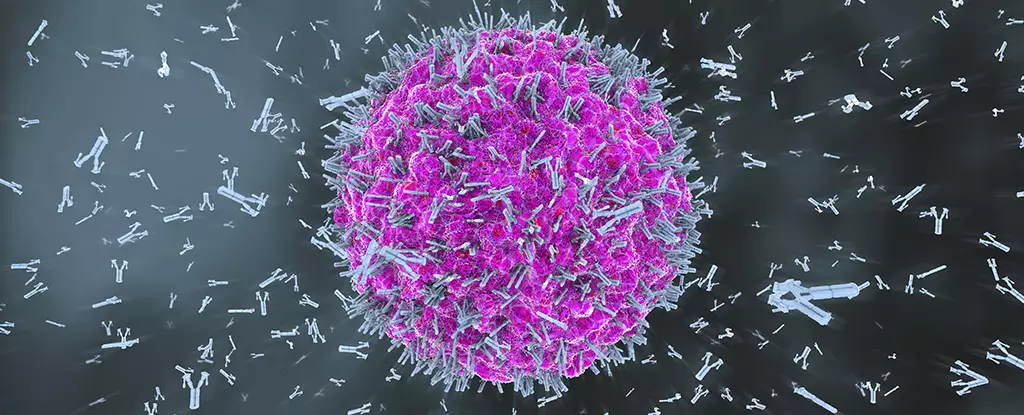

Our immune system plays a crucial role in protecting our bodies from invading pathogens by distinguishing between foreign DNA and our own DNA. When this process malfunctions, it can lead to serious health issues. Scientists are continually seeking to understand the intricacies of the immune system, and a recent discovery of a ‘switch’ that deactivates a sensor of foreign DNA may provide valuable insights. One key player in this process is the enzyme cyclic GMP-AMP synthase (cGAS), which is responsible for identifying viruses that enter the body.
Researchers from the Swiss Federal Institute of Technology Lausanne have identified a biological switch that deactivates cGAS in places where no immune response is needed. This switch marks the enzyme for deletion, preventing it from attacking healthy cells when there is no threat from foreign DNA. The switch, known as CRL5-SPSB3, adds a chemical called ubiquitin to cGAS, marking it as disposable. This discovery sheds light on how cGAS is regulated and helps in understanding how the immune system responds to threats.
As cells divide and grow, the nuclear envelope dissolves, allowing cGAS to have easy access to the DNA within the nucleus. In this study, researchers found that cGAS binds to DNA packaging units called nucleosomes and is covered by a protein called BAF, waiting to be activated when needed. The protein complex CRL5-SPSB3 plays a crucial role in regulating cGAS levels in the nucleus and determines when the enzyme should be deactivated.
Autoimmune disorders, such as type 1 diabetes and inflammatory bowel disease, occur when the immune system does not function properly. Understanding the regulation of cGAS and the role of the CRL5-SPSB3 switch in immune response could lead to new treatment strategies for autoimmune disorders. By targeting the degradation of cGAS and developing ways to ensure its proper regulation, scientists may be able to prevent autoimmune reactions and maintain a healthy immune system.
The findings of this study provide important insights into the regulation of cGAS in immune response. By understanding how cGAS is controlled in the nucleus and identifying the key switch that deactivates the enzyme, researchers can explore new therapeutic avenues for treating immune-related disorders. This research opens up opportunities for further studies on protein degradation as a determinant of cGAS regulation and highlights the potential for developing targeted therapies for autoimmune diseases.With a better understanding of cGAS regulation, researchers may be able to develop more effective ways to ensure the enzyme behaves appropriately in response to threats. This could have significant implications for the treatment of autoimmune disorders and other immune-related conditions.
In the realm of software development, the ability to swiftly and accurately address bugs is…
The realm of quantum computing and communication is not just an abstract dream anymore; it…
In a remarkable leap for the field of material science, a collaborative research initiative has…
Throughout Earth's vast history, our planet has endured five major mass extinction events that reshaped…
Rainfall is a vital element of our planet’s hydrological cycle, yet many aspects of its…
On a night when the universe aligns, a mesmerizing phenomenon awaits: the appearance of the…
This website uses cookies.